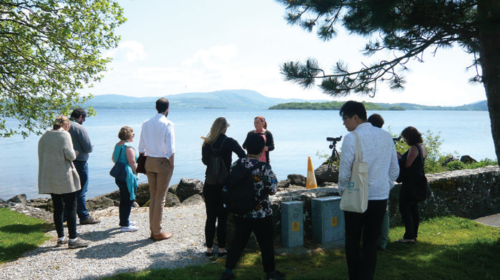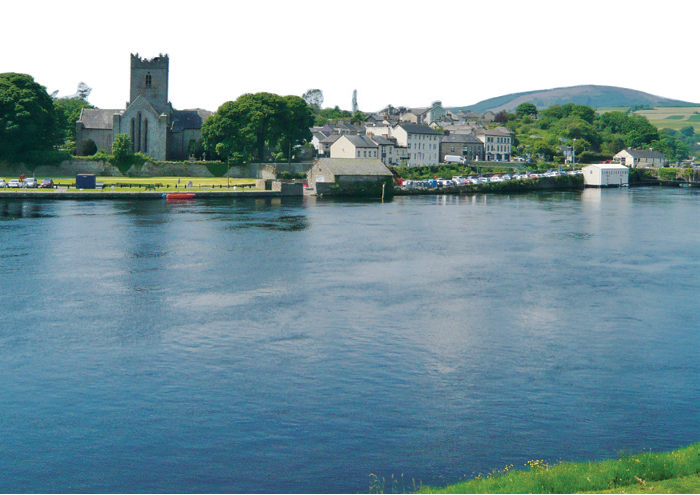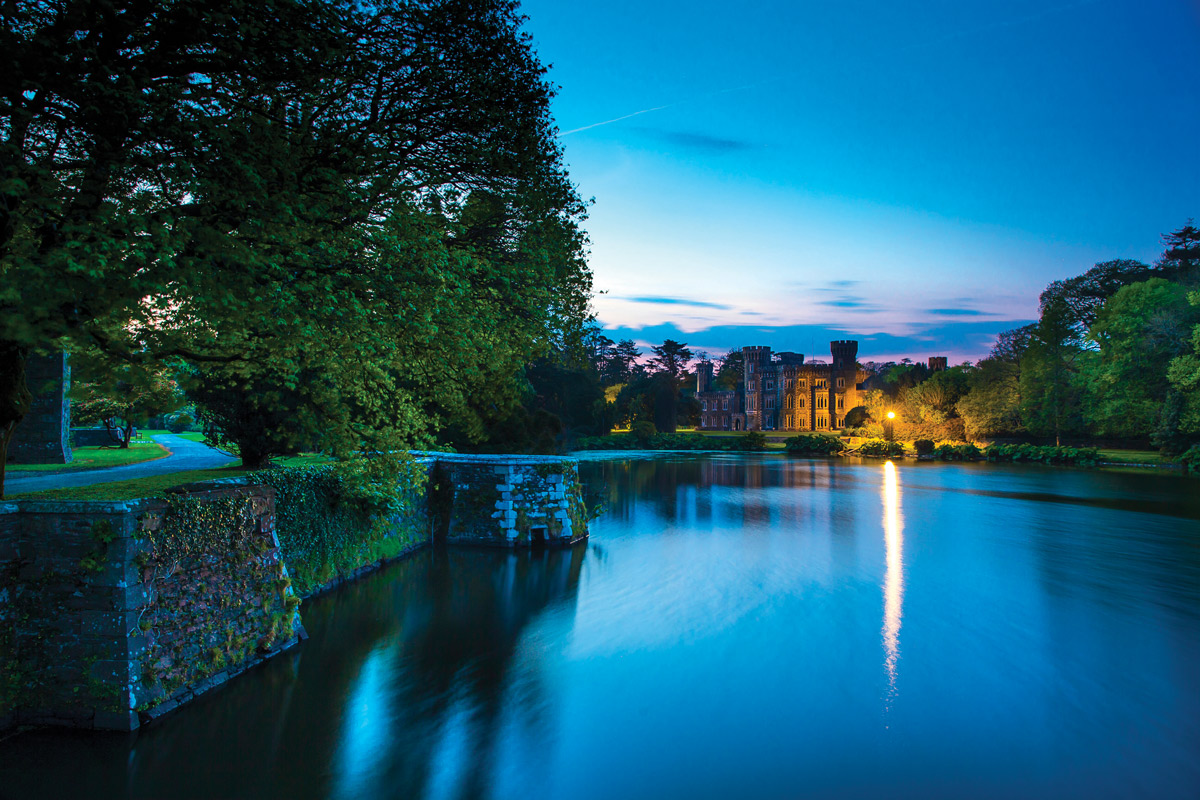Ruth Minogue and Terry O’Regan share their thoughts on another successful National Landscape Forum |
The title of the National Landscape Forum this year was ‘Ireland’s Waterscapes’, which facilitated presentations and discussions about our diverse waterscapes, from the peak of rain-soaked mountains all the way down to rolling seas and more. The town of Killaloe-Ballina selected as the venue suggested the theme due to its location on Lough Derg, one of the lakes on the River Shannon, the longest river in the British Isles. The town straddles two counties, Clare and Tipperary, and has evidence of human settlement dating back to the Neolithic period.
There is evidence of human settlement and activity all along the River Shannon, and in the 1920s when Siemens constructed a hydroelectric power plant at Ardnacrusha, below Killaloe-Ballina, it a was the largest engineering project of its time.
This led to considerable water changes in the river and lake, and today there are other challenges including climate change, flood relief schemes, transport infrastructure, changing agricultural practices and the proposed water extraction project to serve the needs of Dublin.
This year’s forum marked yet another milestone in the LAI journey to link landscape and communities in a proactive engagement. The LAI team was led this year by Ruth which
brought a fresh, lively enthusiasm, energy and openness to the tried and trusted forum formula. It augurs well for the future of this important people’s initiative now in its 23rd year.
The photographic exhibition ‘Faces and Places of Lough Derg’ was opened ahead of the forum. The landscape photographic project based on old images of Ballina-Killaloe were a welcome return to the multi-layered structure of the early forums.
The forum proper was opened on Thursday evening (24 May) by Willie Cumming of the Department of Culture, Heritage and the Gaeltacht, placing the forum at the centre of Ireland’s National Landscape Strategy. Terry O’Regan followed, drawing a direct line between the European Landscape Convention and our most humble waterscapes. Mark Boyden closed the evening’s presentations with a relaxed exploration of successfully taking sustainable river management to schools and local communities. The evening’s activities concluded with a boat cruise on the dramatic waterscape Lough Derg, which set the tone for the following day’s deliberations.
Highlights of the busy programme on Friday included keynote speaker Jonathan Porter (Countryscape) describing the Scottish Natural Heritage project ‘Talking about our Place’; Eanna Rowe of Waterways Ireland, highlighting the importance of waterways for cultural heritage, tourism and recreation; and Mary Boland of Ormston House, who explained their art project in, on and of the River Shannon Mythological Water Beasts.
Frances Ryland discussed her research on the cultural value of coastlines in the context of the Irish Sea, and Daniel Norton of the National University of Ireland explained ecosystem
services research along the Atlantic coast. Tadgh O’Mahony(EPA) discussed the cultural value of wetlands and Cormac McCarthy (Waterways Ireland) discussed heritage of inland
waterways and oral history projects around the river. He played a great recording from a man who had worked on the Ardnacrusha project where a hurling game was played between Irish (Gaelic speakers from Connemara), German and local workers on the scheme.
Jan Yard provided fascinating insights on the photography project already mentioned and local historian Una Kierse provided the historical development of Killaloe. Community
engagement and river catchments were discussed by Ruairi O’Conchuir of the Local Authority Water and Communities Office. Brian McCarthy, Senior Planner with Clare County
Council explained the evolution of landscape policy at his local authority level. Dr. Tadgh McIntyre of GoGreenex and University of Limerick and Caroline Madden of W2 Exchange
discussed the development of Clarisford Park and the wellbeing benefits of green space. Finally, Nancy O’Keefe discussed built heritage of the waterways and gave an account of how her family restored traditional wooden boats on the River Shannon.
The action-packed programme continued in the afternoon with three field trips, to the town of Killaloe, to nearby Clarisford Park, and to the village of Mountshannon on the shores of Lough Derg. It would be impossible to report on the diversity and richness of these visits in this short overview but the live workshops that followed the field trips effectively demonstrated the value of the hands-on strategy of the innovative landscape forum.
The National Landscape Forum is a vital element of the National Landscape Strategy. Its capacity to draw in partners and engage local communities in an awareness-raising and constructive two-day programme was well illustrated by this year’s event in Ballina-Killaloe and plans are already in train for the 2019 forum.
The forum successfully brought experts together, from diverse corners of our landscape, and prompted talk of future forums on the state of our landscape and on more focussed
events such as one-day workshops or seminars on landscape training and best practice actions in landscape management.
Terry O’Regan may be stepping back a bit, but the landscape forum is proving that its strength lies in the fact that it is owned by those who are willing to not only seize the
day but to seize the day together. ✽








